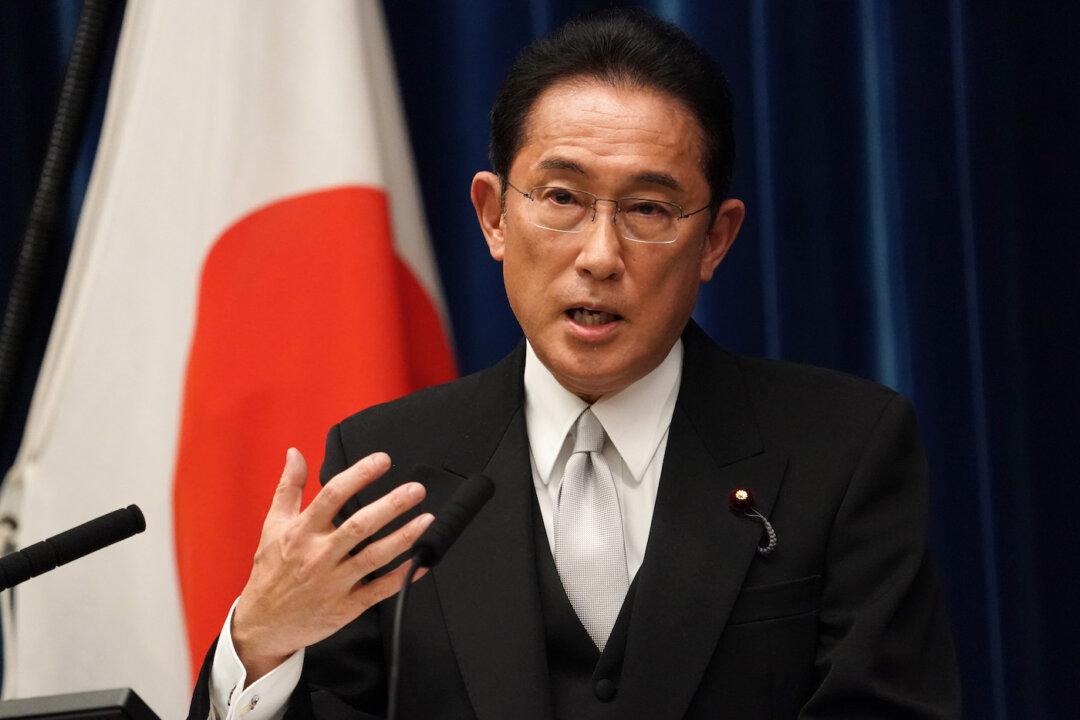Japanese Prime Minister Fumio Kishida reiterated his commitment to bolstering Japan’s defense posture by looking into “all options,” including the acquisition of “enemy base attack capability,” indicating a potential shift from the country’s post-war pacifist constitution.
In his policy speech on Dec. 6, Kishida said the government would revise the National Security Strategy, National Defense Program Guidelines, and Mid-Term Defense Program in a duration of roughly a year.





